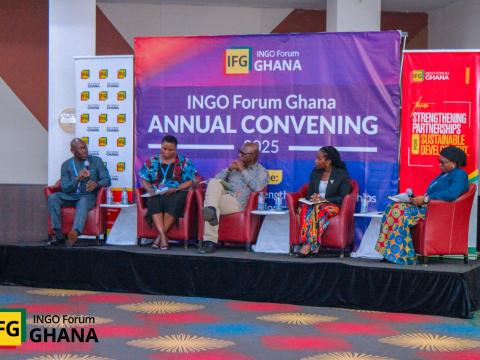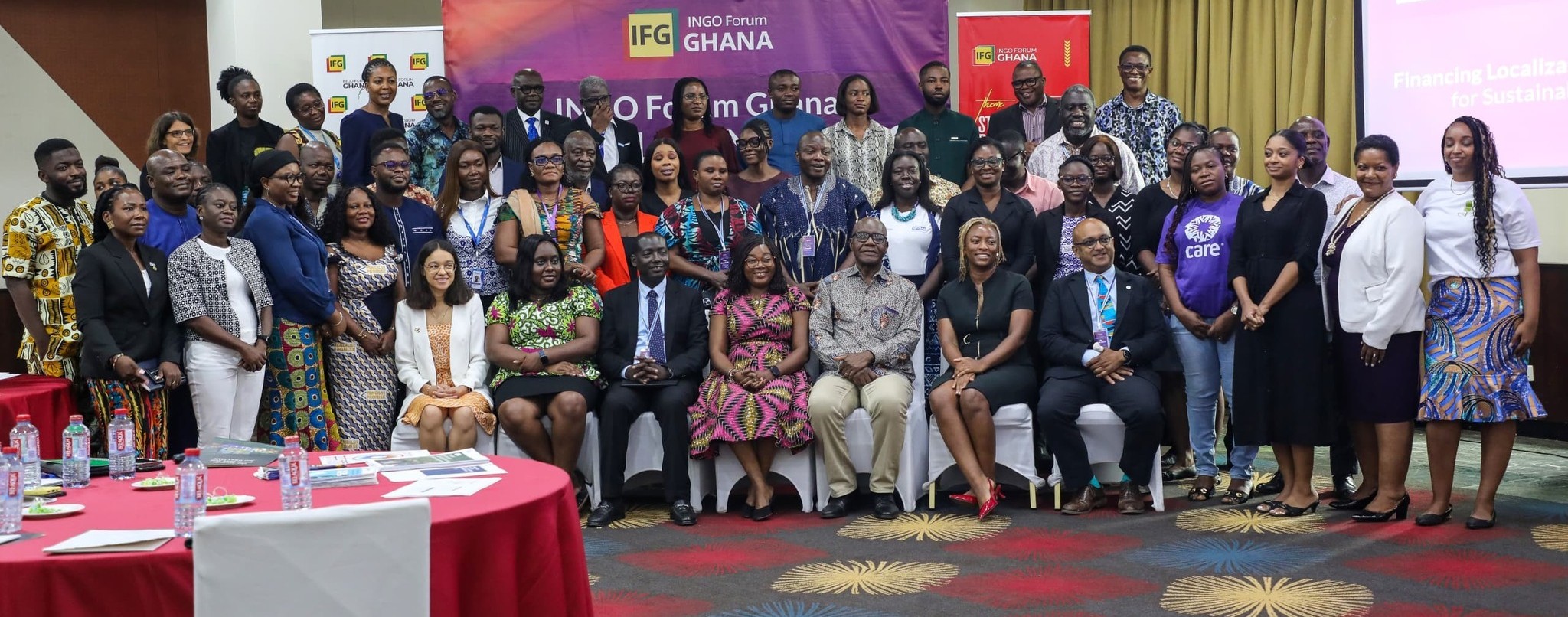World Vision Ghana National Director Urges Intentional Localisation at INGO Forum

By Vivian Adu, Communications Officer
World Vision Ghana’s National Director, Tinah Mukunda, has called on international NGOs and donors to adopt a more intentional, inclusive, and sustainable approach to localisation in Ghana’s development sector.
She made these remarks as a panelist at the International Non-Governmental Organization (INGO) Forum Ghana, held under the theme “Financing Localisation: Strengthening Partnerships for Sustainable Development in Ghana.”
The INGO Forum, a coalition of over 32 international NGOs working across Ghana including World Vision Ghana, convened stakeholders from government, donor agencies, civil society, and the private sector to deliberate on how financing models can be restructured to empower local organisations and strengthen sustainable development outcomes.
Speaking on the issue of capacity building, Mukunda stressed the importance of moving beyond generic approaches toward “fit-for-purpose” capacity support, tailored to the unique needs of local partners. She noted that successful partnerships require careful assessment, co-design, and joint implementation with local actors, rather than top-down interventions designed in isolation.
“We cannot sit in Accra as World Vision and begin to design capacity building for a local organisation without them. Nothing is for us without us. If we want sustainability, we must bring local partners to the table and listen to them,” Mukunda said.
She further emphasised the need for INGOs to redefine success in capacity building, warning against endless cycles of training without clear graduation or empowerment benchmarks. Using a parenting analogy, she explained that just as a child learns to walk by being given space to try, local organisations must be allowed to take the lead, even if it involves risks and failures.
Mukunda also challenged the donor community to adopt simplified, context-sensitive financing modalities, arguing that overly complex requirements often shift the focus of local organisations away from serving community members toward satisfying donor bureaucracy.
“Eighty percent of the time, organisations are serving the donor rather than the community member. We need meaningful conversations that bring NGOs, local partners, and donors to the same table to design solutions that work in context,” she added.
The forum, aligned with Ghana’s decentralisation agenda, served as a platform to deepen dialogue on financing localisation, foster stronger partnerships, and collectively navigate the risks and opportunities in Ghana’s current socio-political and financial context.
By foregrounding the voices of both INGOs and local actors, the event reaffirmed the shared commitment to advancing sustainable development pathways where communities are empowered to lead their own transformation.
